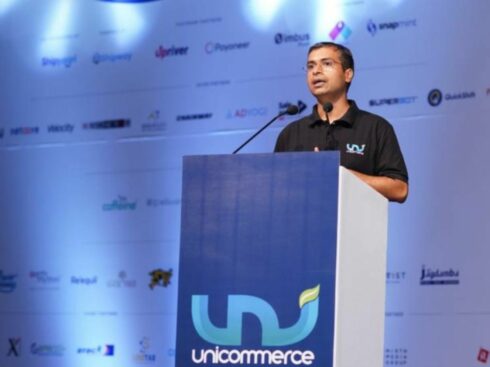
SUMMARY
A Guardian report this week found that Amazon paid meagre corporation taxes in India despite billing billions in revenue
Cloudtail paid just £830,000 (INR 8.53 Cr) paid in tax per annum compared with £798 Mn (INR 8.234.55 Cr) in average revenues it reported in the last four years
Cloudtail is currently one of the largest sellers on Amazon, wherein 76% of the business entity is currently owned by Catamaran Ventures
Amazon’s proxy seller Cloudtail–a joint venture between the commerce firm and Infosys cofounder NRN Murthy’s Catamaran Ventures has received a tax notice demand to the tune of INR 54.5 Cr, The Guardian reported on June 14.
The report said that Cloudtail has received a show cause notice from the Directorate General of Goods and Service Tax Intelligence which accused the company of evading INR 54.5 Cr in taxes, along with interest and penalties, for service tax-related matters.
Cloudtail is currently one of the largest sellers on Amazon, wherein 76% of the business entity is currently owned by Catamaran Ventures. The remaining shareholding is indirectly owned by Amazon.
According to the Guardian’s report, Amazon proxy seller Cloudtail paid “meagre” taxes in the last four years, while also filling up the top two posts in Cloudtail with Amazon executives and managers.
The annual report reviewed by the publications showed that Cloudtail paid Amazon fees of £95m last year, which was almost 10X more than the profits reported by Amazon’s Indian business unit.
Further, the report pointed out that Cloudtail’s corporation tax payments are meagre when compared with overall revenues. Cloudtail paid just £830,000 (INR 8.53 Cr) paid in tax per annum compared with £798 Mn (INR 8,234.55 Cr) in average revenues it reported in the last four years. In its last financial year (FY20), Cloudtail paid around £3.4 Mn (INR 35.08 Cr) in cash taxes in FY20 which is quite low when compared to revenues of £1.1 Bn (INR 11,350.88 Cr) reported in the same year.
“Cloudtail’s business model would seem to be the same as Amazon’s across the globe, but on steroids. We are seeing the usual rapid growth in revenue, but the profit margins are wafer-thin at 0.3% over the last four years – it’s practically being operated at cost. How on earth can anyone else compete locally, especially when Cloudtail is essentially a box for Amazon’s trillion-dollar machine?” Paul Monaghan, chief executive of the nonprofit group Fair Tax Foundation told The Guardian.
According to documents sourced from the RoC, Cloudtail India Pvt Ltd had reported operating revenue of INR 11,412.31 crore in the year ended March 2020 (FY20). This was an increase of 27.8% compared to Rs 8,940.4 crore reported in the previous financial year. The company also generated a net profit of Rs 67.54 crore in FY20.
The report comes at a time when Amazon’s proxy selling strategies have been criticised by its own small and medium sellers and other advocacy groups representing independent online sellers.
The country’s top trade watchdog Competition Commission of India (CCI) is currently preparing to probe both Amazon and Walmart-owned Flipkart for their alleged predatory practices.
Amazon India’s Never Ending Woes
From allegations of business malpractices to agitation and a big fight with Reliance and Future Group, nothing seems to be going right for Amazon India, which has found itself under the scrutiny of the Reserve Bank of India (RBI), Enforcement Directorate (ED), Department of Promotion of Industry and Internal Trade (DPIIT) and even the CCI on multiple occasions.
In the most recent development, the company’s representatives, along with dozen of other ecommerce entities, were summoned by the DPIIT to be part of a meeting to discuss alleged violation of India’s foreign direct investment (FDI) policy. The meeting was an outcome of the allegation raised against US-based Amazon and Walmart-owned ecommerce Flipkart, who have been targeted by lobby groups like the Confederation of All India Traders (CAIT) for flouting India’s FDI rules and creating an unlevel playing field of small retailers, both listed on the platform and offline retailers.
One of the biggest allegations against Amazon has been around preferential treatment given to certain large sellers, including Cloudtail and Appario, in which the ecommerce giant has indirect stakes. A Reuters report published in February had highlighted that Cloudtail and Appario made up around 35% of the platform’s revenue through sales in 2019. Overall only 35 sellers on Amazon accounted for roughly two-thirds of all the sales, the report added.
Since then, India’s enforcement directorate (ED) has been investigating the matter. The case did come in the latest DPIIT meeting as well, to which Amazon reiterated that it does not give preferential treatment to any sellers on the marketplace and “treats all sellers in a fair, transparent and non-discriminatory manner”.


























